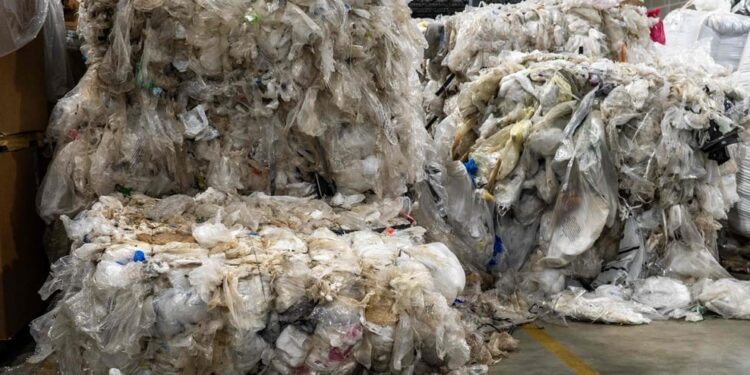On the peaceful banks of the Susquehanna River in the eastern United States, a plot of land in Point Township is the unlikely site of a debate over chemical recycling, with a factory planning to set up there to engage in this controversial mechanism for processing plastic waste.
Packaging, lids and all kinds of plastics: this technology promises to transform them into various petrochemical products.
While it is championed by the plastic-producing fossil fuel industry, environmentalists say it runs counter to the priority of reducing waste.
Like other residents of Point Township, Pennsylvania, Annmarie Weber is concerned about the installation of the Texas company Encina’s factory.
“They behave like a refinery,” she laments from her kitchen located less than a kilometer from the planned site, saying she fears “air pollution, water pollution, toxic chemicals” .
Unlike mechanical recycling, chemical recycling uses heat and chemical solvents to break down plastic back to its basic petrochemical components.
For Sheida Sahandy, responsible for sustainable development at Encina, this process makes it possible to transform “what was waste into a profitable material”, at a time when plastic is flooding the oceans and landfills.
Raw materials created through chemical recycling can be used to make all kinds of products, including fuel. Encina assures that it does not want to produce fuel.
According to the NGO Beyond Plastics, fuel production only perpetuates “a cycle of petrochemical extraction, plastic production and combustion”.
“Less plastic”
Chemical recycling plants are often “allowed to release air pollution that is harmful to health,” notes Veena Singla of the Natural Resources Defense Council.
“Many of them also produce large quantities of hazardous waste,” adds this scientist.
Only 9% of plastic waste is recycled each year in the United States, according to the latest official figures from 2018. The majority of plastic ends up in landfills, incinerated or thrown into nature.
At its sprawling petrochemical complex in Baytown, Texas, ExxonMobil has one of only 11 chemical recycling plants in the United States, according to figures released in October by Beyond Plastics. Proof, according to the NGO, that this method remains considered too “energy-consuming, costly and unfeasible”.
Because even if these factories were operating at full capacity, they would process less than 1.3% of the plastic waste produced each year in the United States.
Melanie Bower, head of sustainable development at ExxonMobil, nevertheless affirms that this process is “a complementary technology to mechanical recycling”.
But for expert Veena Singla, industries want to convince consumers that it is a “sustainable and ecological way to manage plastic waste”. “The real solution: less plastic, period!”, she concludes.
“Too much risk”
In Point Township, residents also worry about large amounts of Susquehanna water that could be used to wash plastics before returning them to the river.
The returned water “will have undergone a filtration process that it would not have undergone otherwise,” wants to reassure Sheida Sahandy of Encina.
“And we have to comply with all kinds of requirements to make sure there’s nothing harmful,” she insists.
But according to the company itself and local experts, no regulations apply to microplastics and PFAS, common additives in plastic: they do not break down easily and are associated with cancer, health problems fertility and environmental damage.
And among the petrochemicals Encina makes is benzene, a known carcinogen that residents fear could be released in the event of an accident or natural disaster.
When a company “proposes to use public resources such as air, water and land, it is legitimate for its background and its project to be closely examined,” said Andrew Stuhl, environmental specialist at Bucknell University.
For this Pennsylvania professor, “there are far too many risks and unknowns.”



